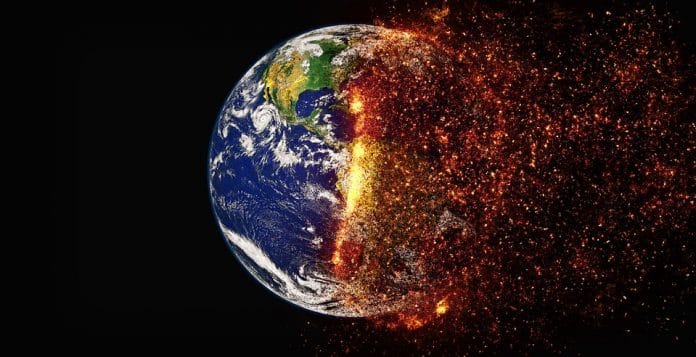Since the 19th century, temperatures have been falling. I was as surprised as you. As it turns out, this isn’t about the climate for once, but about human body temperatures. On average, millennials in the U.S. today run 1.06 degrees Fahrenheit cooler than Americans did in the 1800s, if they’re male, and 0.58 F cooler if they’re female. The reason appears to be a steady decrease in inflammation. In short, we keep getting healthier.
Let’s meditate on that for a moment. Some important indicator that we’ve never even thought about has been improving. And this particular trend, in fact, is part of a much bigger one. Come to think of it, almost everything seems to be getting better. So let’s take a brief break from worrying about environmental apocalypse and rejoice.
Because we’re getting healthier, we’re also living longer. In fact, we’ve become so good at staying alive that we’ll bankrupt our pension systems if we don’t reform them first. And, thanks to modern medicine, we’re close to eliminating child mortality. Moreover, we’re not just living longer, we’re also on average living better. Poverty keeps decreasing, and literacy keeps increasing. We’re also killing each other less. Homo sapiens has been getting steadily less violent since we hunted and gathered in the savannas; and despite our increasingly lethal weapons, deaths in war keep decreasing.
For some reason, though, we spend less time celebrating our advances than worrying about the bad stuff. Sure, we live longer, but aren’t our sperm counts falling? Journalists in particular (and thus the media you get) have a bias toward the dark side. I’ve recently kept busy fretting about the next pandemic, the risk of nuclear war, and of course inequality and climate change.
But don’t hold that against us, or yourself. Our negative lens seems to be a side effect of evolution. It’s always been much more useful for survival and procreation to dread the saber-toothed tiger that’s out there somewhere than to rejoice in another day of fine metabolism and harmony around the campfire.
Unfortunately, however, this same evolution has not only skewed our attention away from boons and toward banes, but it’s also given us a flawed perception of risk. Terrorism, for example, isn’t much of a risk at all, statistically speaking. Similarly, we should stop fretting about the radiation coming from our cell phones and start panicking about the danger of cognitive distraction when we talk on them while driving.
That brings us back to the mother of all risks, temperature change, but on our planet, not in our bodies. We don’t dread global warming (warming sounds so cosy, doesn’t it?) the way we feared the saber-toothed tiger, unless we’re Greta Thunberg. Worse, when the tiger showed up, the village instinctively parried it together; by contrast, faced with climate change, we can’t quite figure out how to share the burden of mitigating it.
When we immodestly called ourselves homo sapiens, we built an ambiguity into our destiny. As these charts of progress prove, we are quite capable of being “wise” (sapiens). But as climate change reminds us, we need to prove our wisdom again and again. Our collective survival will one day depend on it. So let’s celebrate our triumphs. And then let’s get back to work.
Also read: The next pandemic will come. Here’s how to prepare






